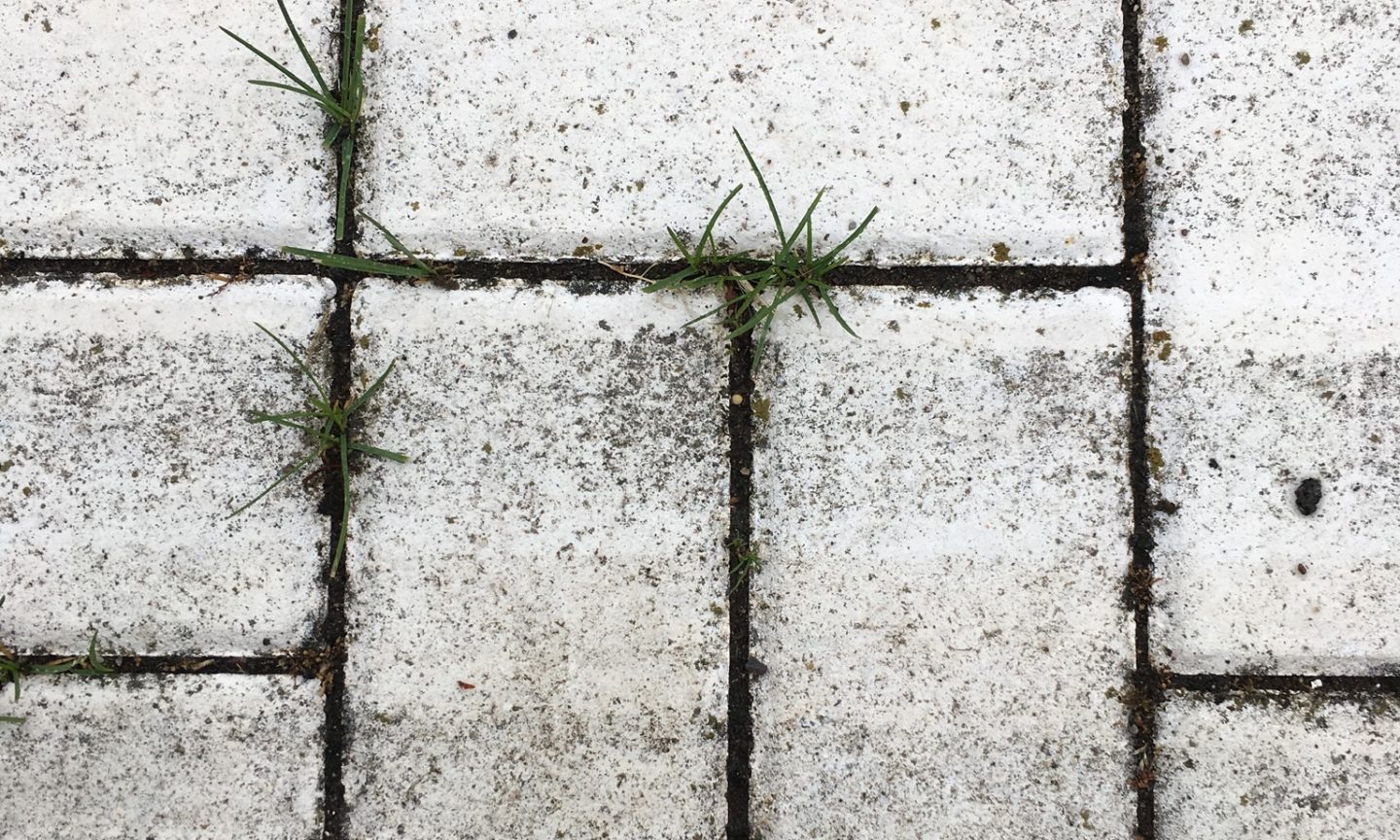
New impulses for an equality conscious diversity framework in cultural policy
Summer School by Zeppelin University: 30th August – 5th September 2022
Hier klicken für die deutsche Version.
The expansion of global networks and artistic collaborations is a current development in cultural sectors worldwide. This is directly interrelated with sociopolitical developments in societies and transcultural learning processes. The Summer School, organized by Zeppelin University Friedrichshafen (Germany) in cooperation with CAMP notes on education in Kassel from 30th August to 5th September 2022, examines diversity and transformation processes critically in cultural and political education in five fields (1) production, (2) arts education, (3) structures, (4) conflicts and (5) cultural policy. As an example, documenta fifteen as a major event in the cultural sector will be critically analyzed and discussed.
documenta fifteen is curated by the Indonesian artist collective ruangrupa: Its conceptual foundation derives from the values and ideals of “lumbung” that aims for a collaborative, community-oriented model of sustainability, in which resource use is not only limited to economic means but also includes ideas, knowledge and programmes (documenta 2021). In the Indonesian language, “lumbung” literally means a rice barn “where a community’s harvest is gathered, stored and distributed according to jointly determined criteria as a pooled resource for the future” (documenta 2021).
The Summer School takes this collective approach as a starting point to rethink cultural and political education as well as cultural policy structures in Germany. To this end, the participants will discuss the implementation of the claims of collective thinking, equality-based resource building and sharing, their potentials, pitfalls and controversies.
The formats of the summer school are workshops, discussions, lectures, group work, exhibition visits and fieldwork. The participants will develop individual perspectives, dispute and question them and participate in discussions with educational actors. They will work in small collaborative groups to reflect on challenges, potentials and pitfalls of the entire structure of documenta fifteen in terms of a plurality-oriented cultural production, representation and knowledge transfer.
In this context, the discussions around documenta fifteen – for example, the incidents of antisemitism, racism, islamophobia, othering, queer- and transphobia within the exhibition but also at its ridges – are a relevant example of conflicts occurring and structural negligence while operating in transcultural networks and different historical, political and social contexts. In this respect, the conditions of focusing on a single aspect in terms of interleaving conflicts will be discussed and the chances and challenges of holistic and intersectional approaches analyzed. Thus, the Summer School opens up a space to negotiate and discuss these contradictions from cultural and political education perspectives.
Research Questions
(1) FOCUS PRODUCTION
To what extent are new co-creation methods implemented in the artistic practice or the canon of knowledge at documenta fifteen?
(2) FOCUS ARTS EDUCATION
What new formats for cultural and political education can emerge from the educational approach of documenta fifteen? Where do transfer effects exist?
(3) FOCUS STRUCTURES
What role do existing power relations play in reproducing inequalities for access and participation opportunities? How can these be overcome? What parallels exist between cultural and political education?
(4) FOCUS CONFLICTS
What conflicts and challenges of transcultural artistic work can be identified? How are the accusations of political negligence – antisemitism, racism, islamophobia, othering, queer- and transphobia – within the institution and the broader cultural landscape reflected and responded to in the specific political and cultural education, based on Germany’s history and contemporary backgrounds? What new questions for political exhibition making arise from these learnings? What roles can individual and collective positioning play in conflict and social transformation?
(5) FOCUS CULTURAL POLICY
Which cultural policy strategies (in terms of content, narratives, processes and structures) can be generated from the example of documenta fifteen, which are instrumental in the implementation of an equality conscious diversity framework in cultural policy?
The above-mentioned questions will be discussed controversially and in the breadth of their public perception. The Summer Schools will discuss critical perspectives in the five mentioned fields. All five research questions are interconnected, which means the topics of conflicts are also inherent and relevant to the other four areas.
Organization:
Jun.-Prof. Dr. Meike Lettau, Zeppelin University Friedrichshafen (Meike.Lettau@zu.de)
Dr. Özlem Canyürek
Serhan Sahin
DE
“Neue Impulse für die Implementierung von machtkritischer Diversität und Transformation in der Kulturpolitik”
Sommerschule der Zeppelin Universität: 30. August – 5. September 2022
Die Ausweitung globaler Netzwerke und künstlerischer Kooperationen ist weltweit eine aktuelle Entwicklung im Kulturbereich. Dies steht in direktem Zusammenhang mit gesellschaftspolitischen Entwicklungen und transkulturellen Lernprozessen. Die Summer School, die von der Zeppelin Universität Friedrichshafen (Deutschland) in Kooperation mit CAMP notes on education vom 30. August bis 5. September 2022 in Kassel veranstaltet wird, setzt sich in den fünf Themenfeldern (1) Produktion, (2) Kulturelle Bildung, (3) Strukturen, (4) Konflikte und (5) Kulturpolitik kritisch mit Diversität und Transformationsprozessen in der kulturellen und politischen Bildung auseinander. Exemplarisch wird die documenta fifteen als ein Großereignis im Kulturbereich kritisch analysiert und diskutiert.
Die documenta fifteen wird von dem indonesischen Künstlerkollektiv ruangrupa kuratiert: Ihre konzeptionelle Grundlage leitet sich aus den „lumbung“ Werten und Idealen ab, welches auf ein kollaboratives, gemeinschaftsorientiertes Modell von Nachhaltigkeit abzielt, bei dem die Ressourcennutzung nicht nur auf wirtschaftliche Mittel beschränkt ist, sondern auch Ideen, Wissen und Programme umfasst (documenta 2021). In der indonesischen Sprache bedeutet “lumbung” wörtlich eine Reisscheune, “in der die Ernte einer Gemeinschaft gesammelt, gelagert und nach gemeinsam festgelegten Kriterien als gemeinsame Ressource für die Zukunft verteilt wird” (documenta 2021, eigene Übersetzung).
Die Summer School nimmt diesen kollektiven Ansatz als Ausgangspunkt, um kulturelle und politische Bildung sowie kulturpolitische Strukturen in Deutschland neu zu denken. Dazu diskutieren die Teilnehmer*innen die Umsetzung des Anspruchs des kollektiven Denkens, der gleichberechtigten Ressourcenbildung und des Teilens sowie deren Potenziale, Risiken und Kontroversen.
Die Formate der Sommerschule sind Workshops, Diskussionen, Vorträge, Gruppenarbeiten, Ausstellungsbesuche und eigene Recherchen der Gruppe. Die Teilnehmer*innen werden individuelle Perspektiven entwickeln, diese hinterfragen und an Diskussionen mit Bildungsakteur*innen teilnehmen. In kollaborativen Kleingruppen reflektieren sie die Herausforderungen, Potenziale und Risiken der gesamten Struktur der documenta fifteen im Hinblick auf eine pluralitätsorientierte Kulturproduktion, Repräsentation und Wissensvermittlung.
In diesem Zusammenhang sind die Diskussionen rund um die documenta fifteen – zum Beispiel die Erfahrungen mit Antisemitismus, Rassismus, Islamophobie, Othering, Queer- und Transphobie innerhalb der Ausstellung, aber auch an ihren Rändern – ein relevantes Beispiel für auftretende Konflikte und strukturelle Versäumnisse, die in transkulturellen Netzwerken und unterschiedlichen historischen, politischen und sozialen Kontexten auftreten. In diesem Zusammenhang werden die Bedingungen der Fokussierung auf einen einzelnen Aspekt im Hinblick auf die Verschränkung von Konflikten diskutiert und die Chancen und Herausforderungen ganzheitlicher und intersektionaler Ansätze analysiert. Damit eröffnet die Summer School einen Raum, um diese Widersprüche aus kultur- und bildungspolitischer Perspektive zu verhandeln und zu diskutieren.
Die folgenden Forschungsfragen werden diskutiert und behandelt:
(1) FOKUS PRODUKTION
Inwieweit werden auf der documenta fifteen neue Co-Kreationsmethoden in der künstlerischen Praxis oder im Wissenskanon umgesetzt?
(2) FOKUS KULTURELLE BILDUNG
Welche neuen Formate der kulturellen und politischen Bildung können aus dem Bildungsansatz der documenta fifteen entstehen? Wo existieren Transfereffekte?
(3) SCHWERPUNKT STRUKTUREN
Welche Rolle spielen bestehende Machtverhältnisse bei der Reproduktion von Ungleichheiten für Zugangs- und Partizipationschancen? Wie können diese überwunden werden? Welche Parallelen gibt es zwischen kultureller und politischer Bildung?
(4) SCHWERPUNKT KONFLIKTE
Welche Konflikte und Herausforderungen von transkultureller künstlerischer Arbeit lassen sich identifizieren? Wie werden die Vorwürfe politischer Fahrlässigkeit – Antisemitismus, Rassismus, Islamophobie, Othering, Queer- und Transphobie – innerhalb der Institution und der breiteren Kulturlandschaft in der spezifischen politischen und kulturellen Bildung vor dem Hintergrund der deutschen Geschichte und Gegenwart reflektiert und bezüglich dieser reagiert? Welche neuen Fragen für die Politiken von Ausstellungen ergeben sich aus diesen Erkenntnissen? Welche Rolle können individuelle und kollektive Positionierungen in Konflikten und gesellschaftlichen Transformationsprozessen spielen?
(5) FOKUS KULTURPOLITIK
Welche kulturpolitischen Strategien (inhaltlich, narrativ, prozessual und strukturell) lassen sich aus dem Beispiel der documenta fifteen für die Implementierung von machtkritischer Diversität und Transformation in der Kulturpolitik generieren?
Die oben genannten Fragen werden kontrovers und in der Breite ihrer öffentlichen Wahrnehmung diskutiert. Die Summer School wird kritische Perspektiven in den fünf genannten Bereichen diskutieren. Alle fünf Forschungsfragen sind miteinander verknüpft, d.h. die Themen der Konflikte sind auch für die anderen vier Bereiche inhärent und relevant.
Organisation:
Jun.-Prof. Dr. Meike Lettau, Zeppelin University Friedrichshafen (Meike.Lettau@zu.de)
Dr. Özlem Canyürek
Serhan Sahin
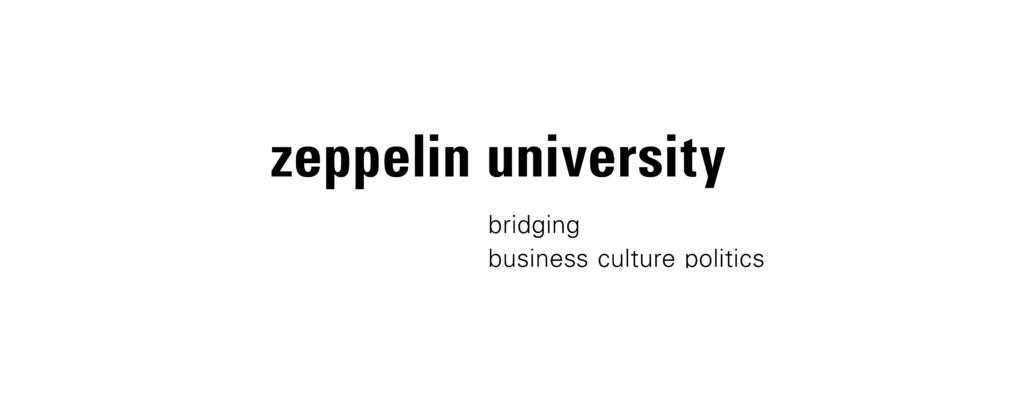
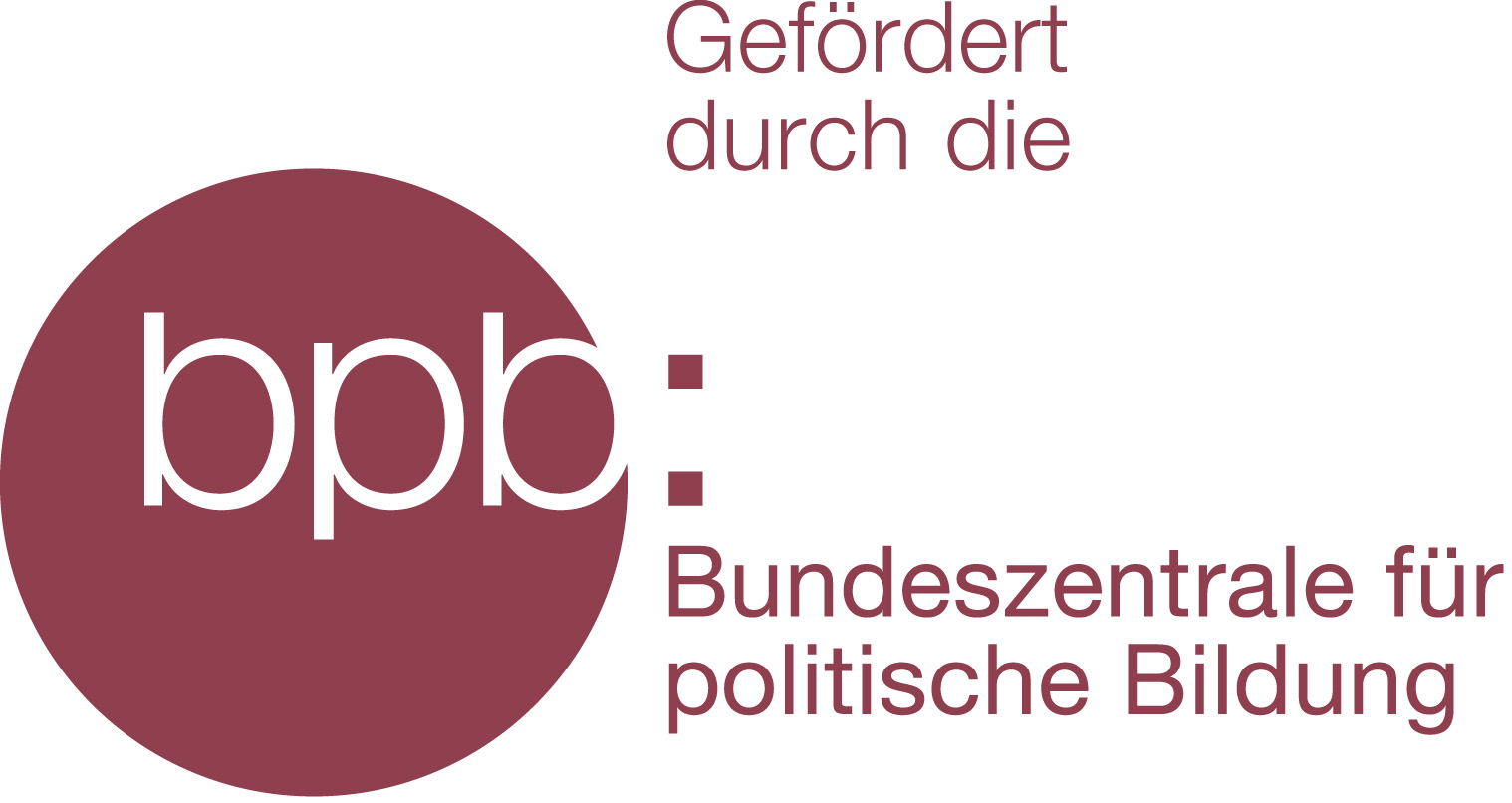
Title Photo Credit: Meike Lettau, 2022.

Diary
Warm-up / Intervention during the Summerschool by Michelle Sáenz Burrola
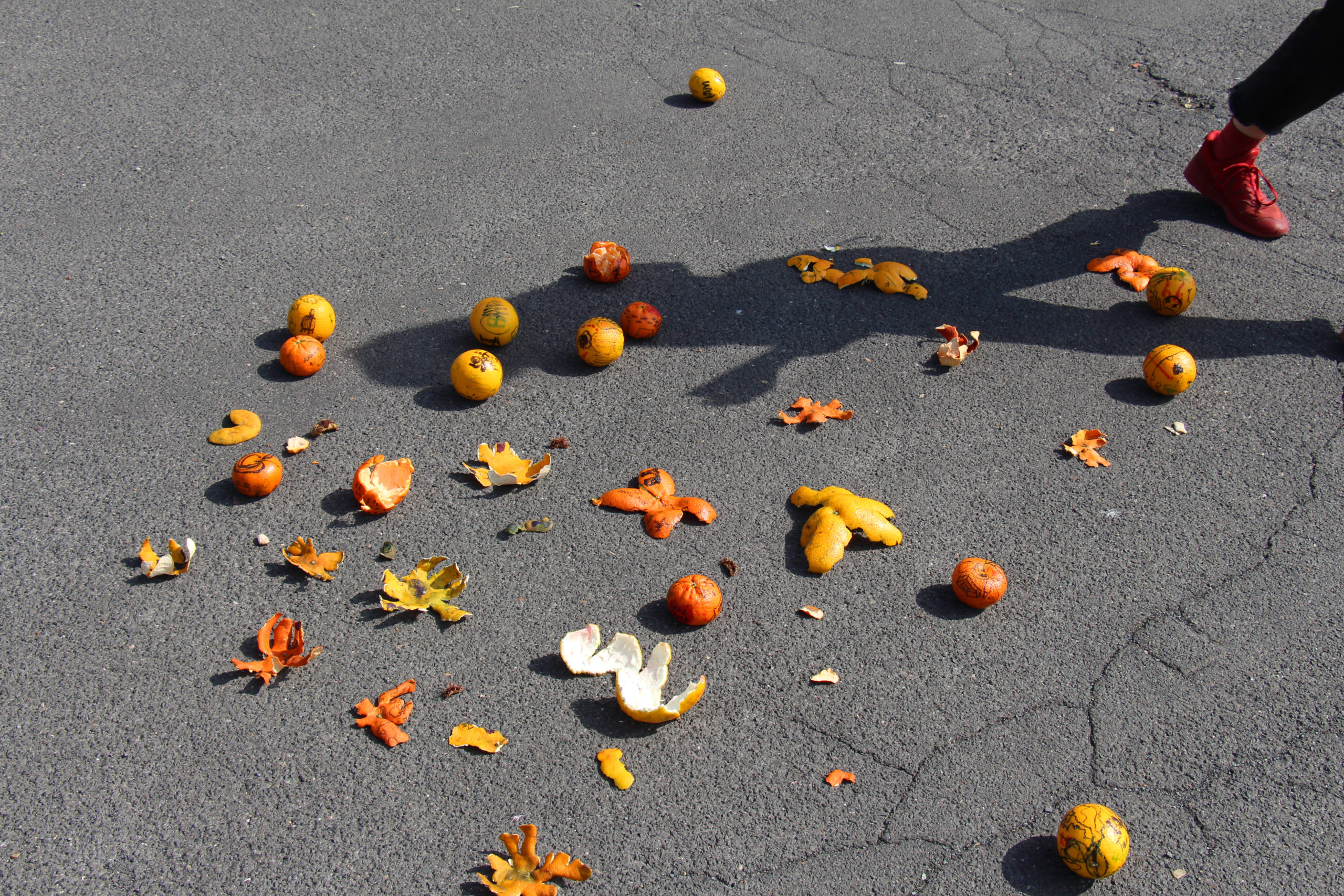
For the intervention, Michelle Sáenz Burrola shared fragments of an ongoing performative research named Mutar el mapa (Mutating the Map). This research deals with questions of cartography in relation to coloniality, the body-territory,[1] and everyday life. Through performance, installation, and collective thinking this investigation seeks to open dialogues that explore elements on maps as well as possible reconfigurations of the Mercator projection and its variants.
During the intervention for the summer school, Michelle shared a few different performative exercises that aimed to explore and think together about such elements of cartography as scale, position, perspective, projection, and collective representation. For this intervention the elements were explored by means of observing, sensing, installing, moving, drawing, peeling, and sharing tangerines.
Mutar el mapa is a continuous performative workshop and research, exploring possibilities and alternative narratives in opposition to cartographies that perpetuate extractivist-colonial-patriarchal relations between the Global South and the Global North. The aim throughout the workshops-laboratories is to open up spaces of movement, exploration, and dialogue: with the understanding that these will be spaces of radical imagination and collective thinking related to the body and everyday life. This space is in constant transformation with regard to its methodologies and questions, thus focusing on processes and experiences.
Michelle Sáenz Burrola is a visual artist working with a poetical approach to performance, drawing, moving images, installations, choreography, and book-making, emphasizing processes and exploring a common platform within the performing arts. Her work looks for alternatives to fixed narratives by retelling them and reconfiguring them through different performative storytelling practices. She holds a BA in Visual Arts from La Esmeralda (National School for Painting, Engraving, and Sculpture) in Mexico City, and an MFA in Performing Arts from the Iceland University of the Arts in Reykjavík.
Link to website: https://michellesaenzburrola.cargo.site
[1] In the book La potencia feminista: O el deseo de cambiarlo todo (2019), the Argentinian theorist Veronica Gago uses the term cuerpo-territorio (body-territory) in order to signal the intrinsic relation between both concepts, whereby one cannot be understood without the other.
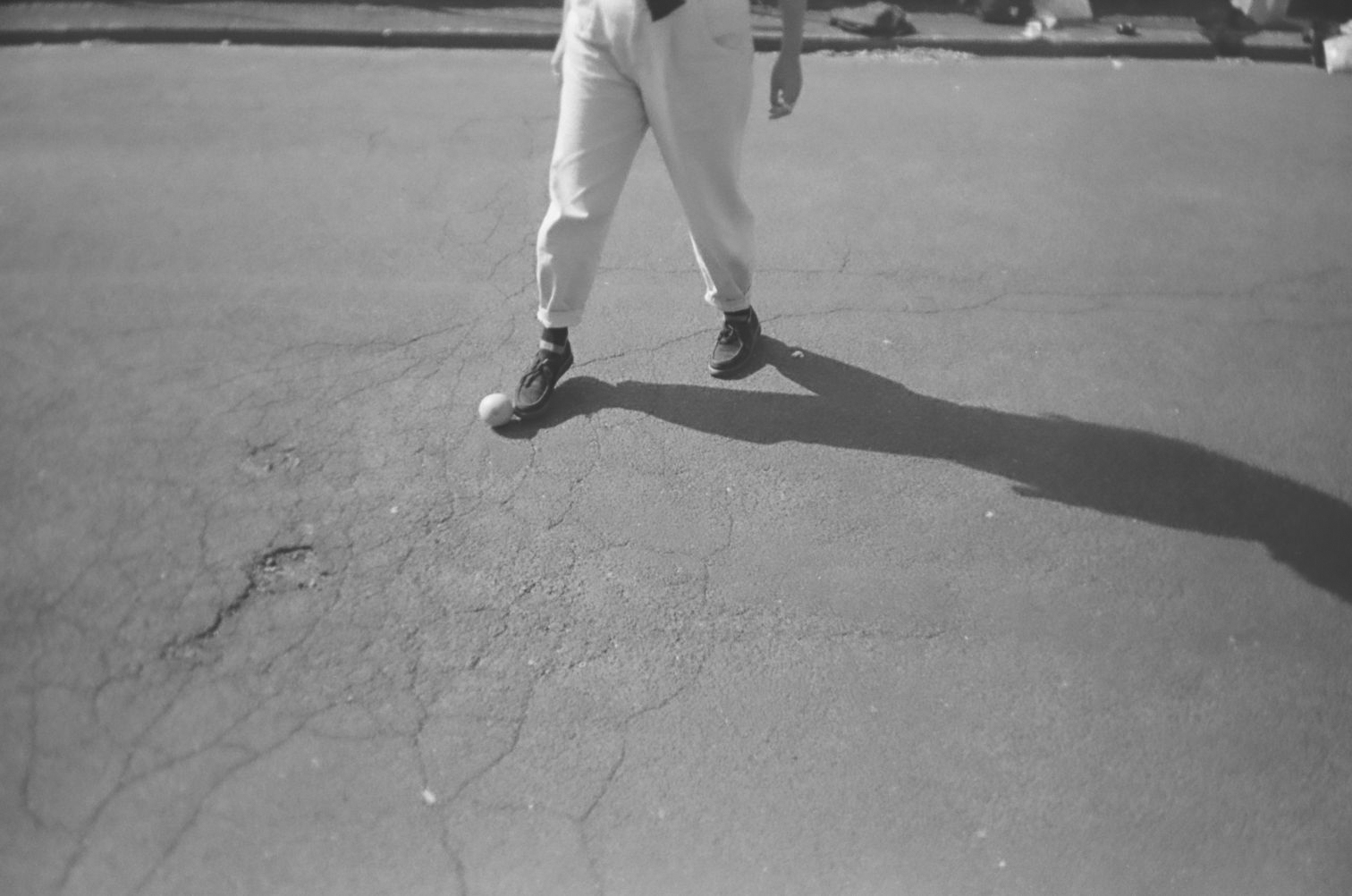
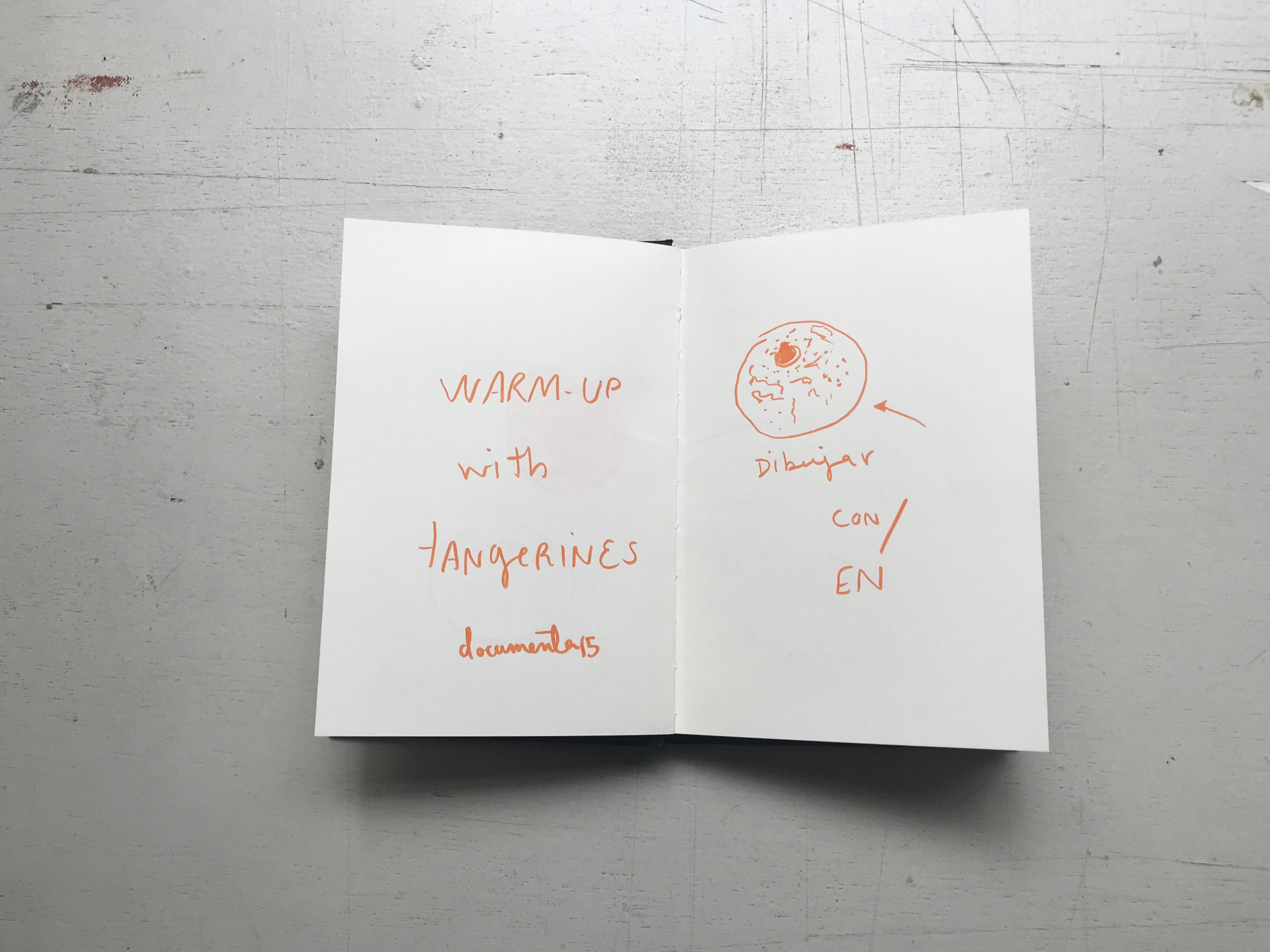
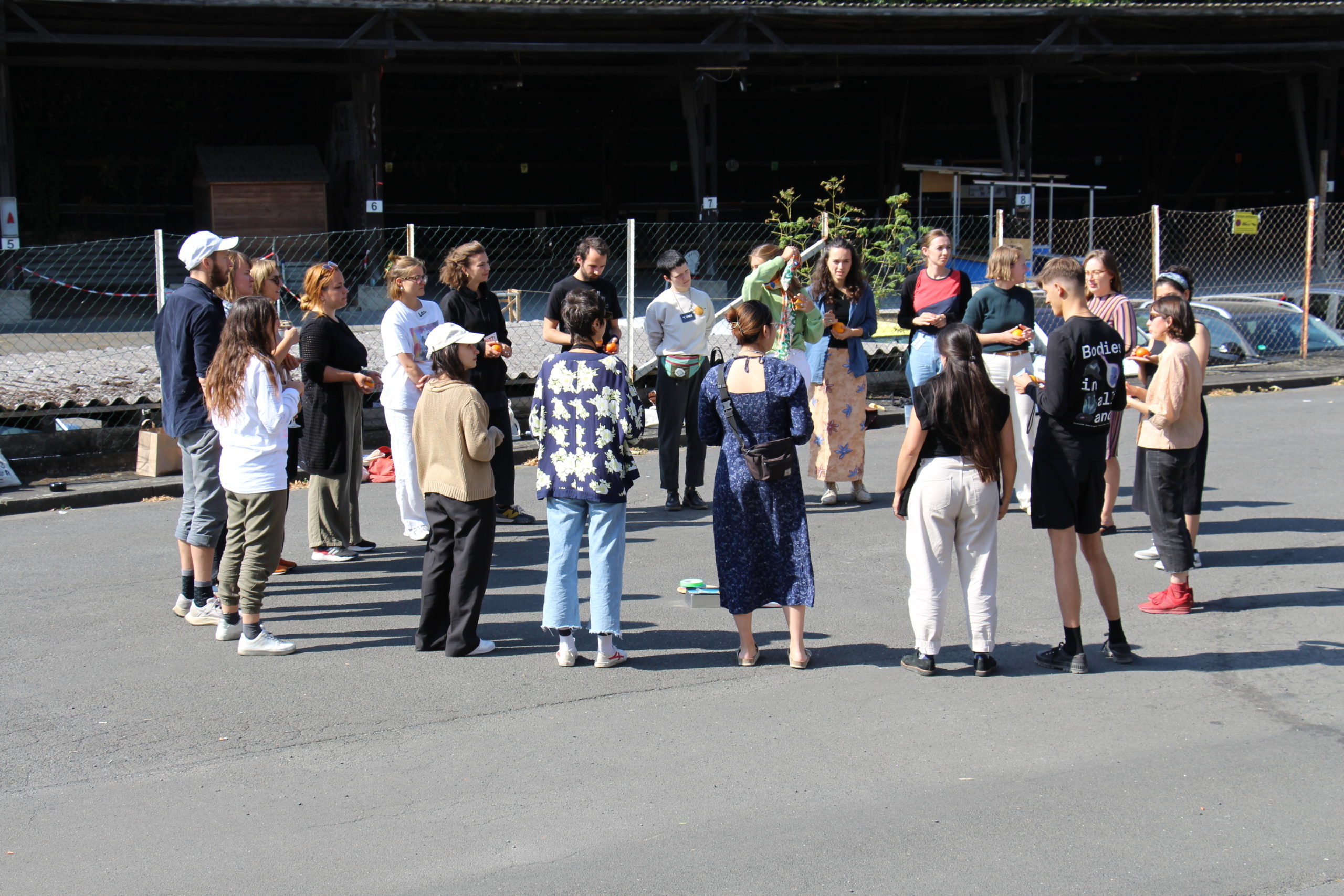
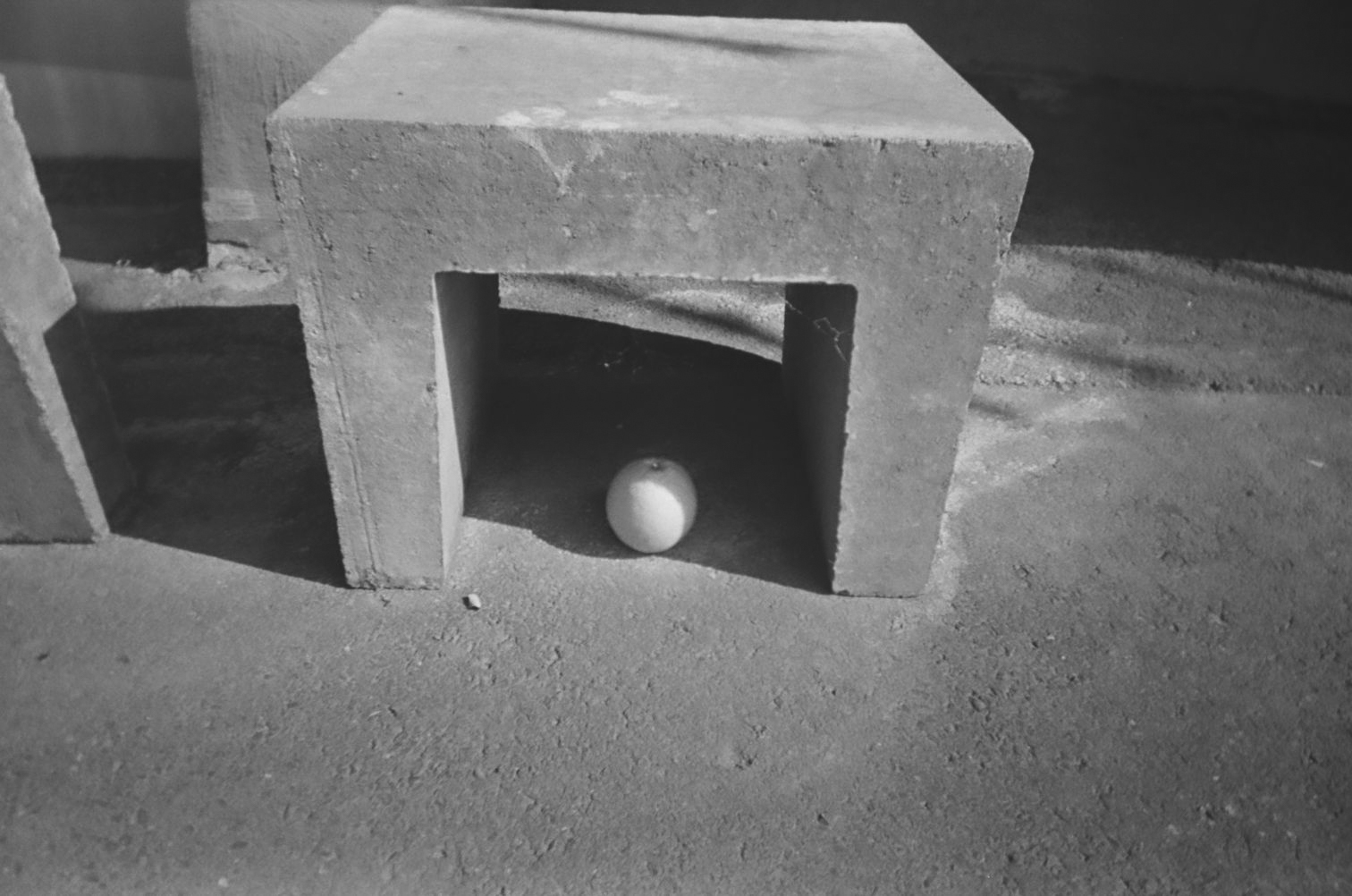
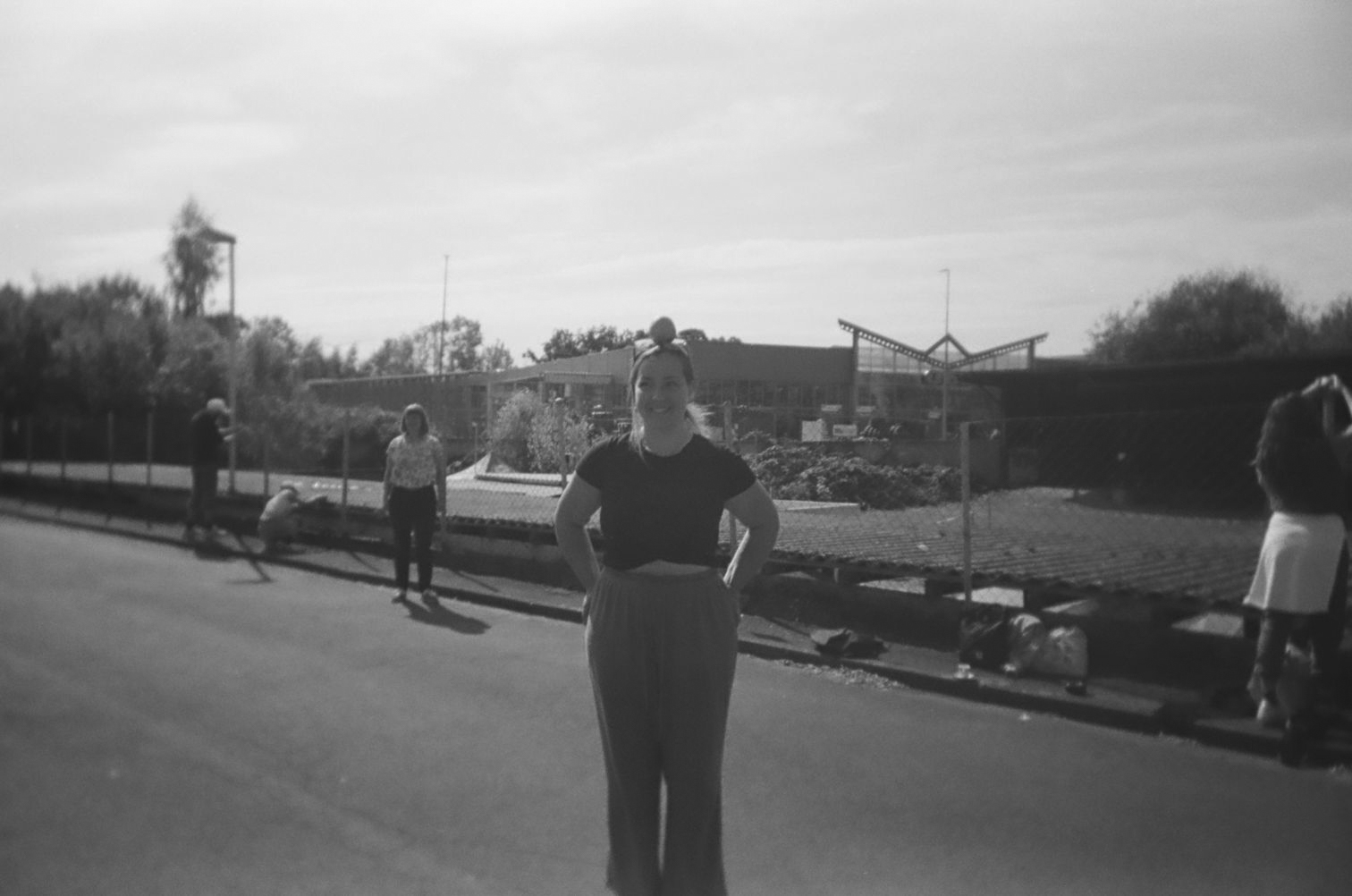
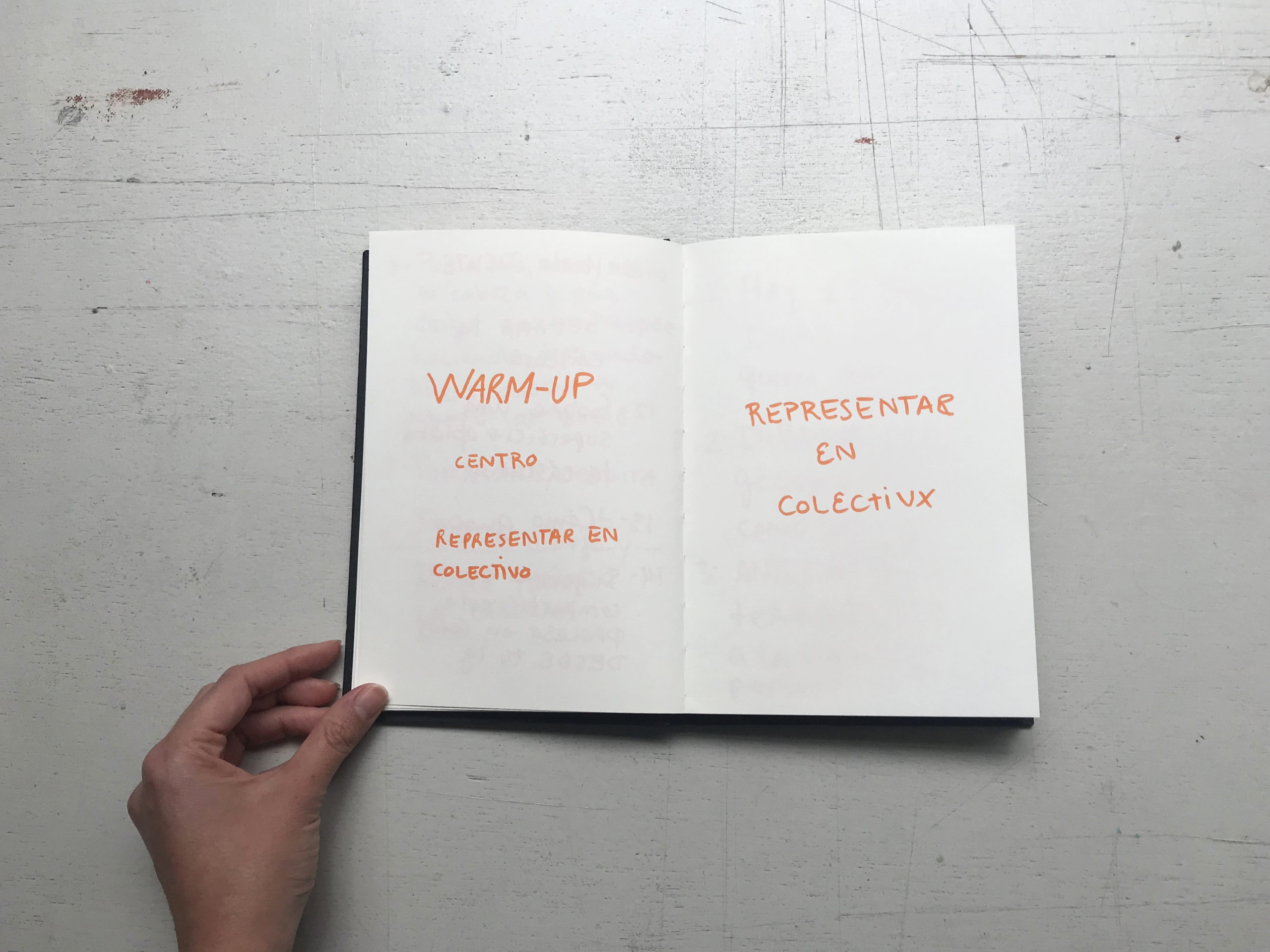
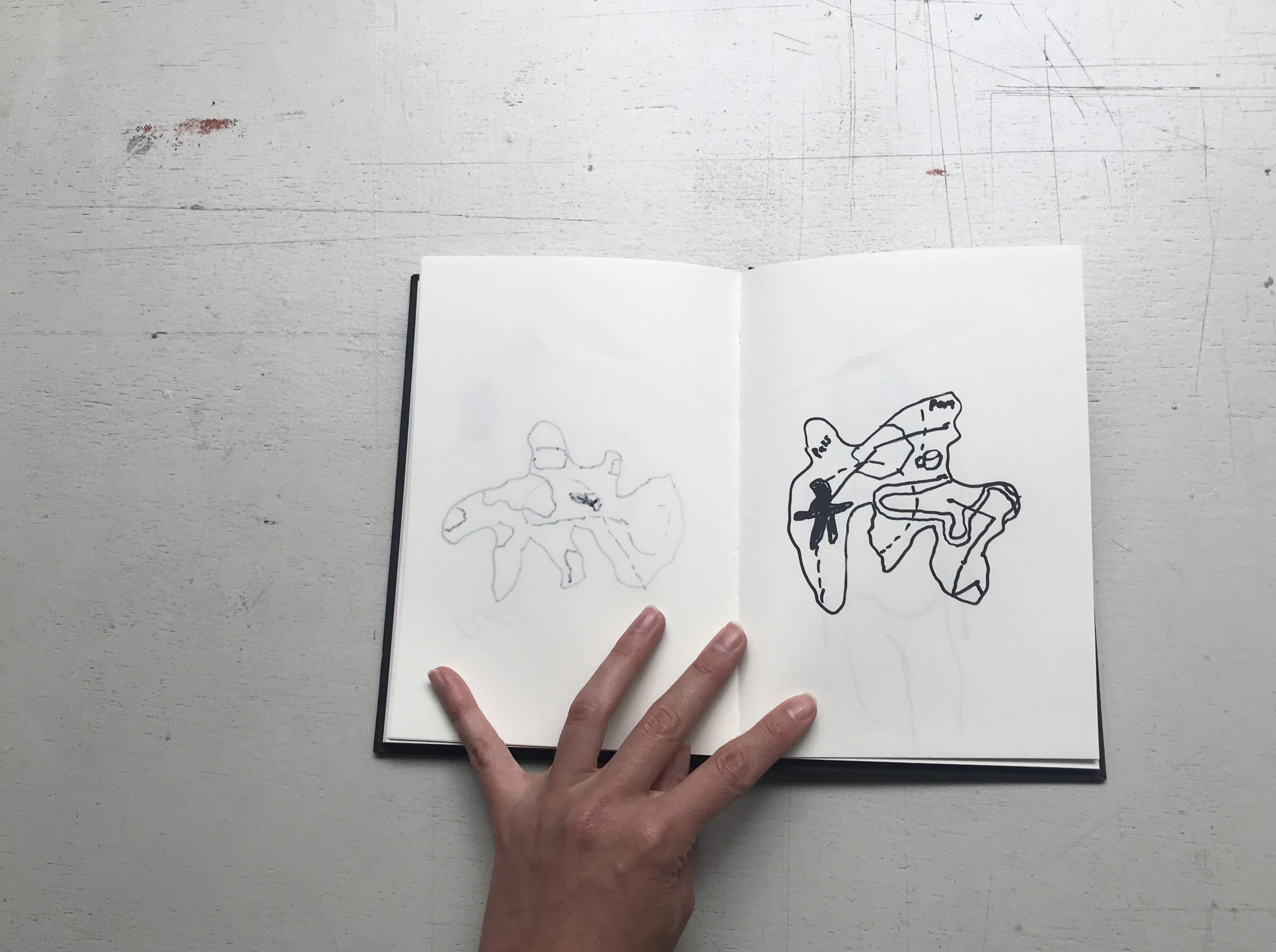
Photos: b/w Michelle Sáenz Burrola, 2022. Color Serhan Sahin, 2022.